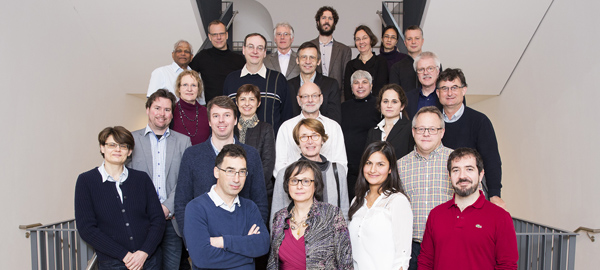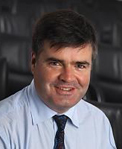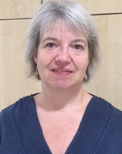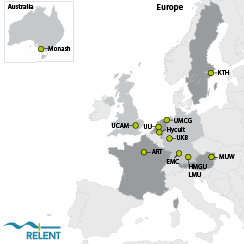 |
 |
|
Dr. Paul LyonsPrincipal Investigator Leader WP 2 Phone: +44 1223 762624 Fax: +44 1223 336846 |
The Chancellor, Master and Scholars of the University of CambridgeThe Old Schools, Trinity Lane CB2 1TN Cambridge UK |
|
|
|
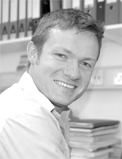 |
Prof. Dr. Kenneth George Campbell SmithProfessor of Medicine Phone: +44 1223 336849 |
Dr. Eoin McKinneyWellcome Intermediate Fellow Phone: +44 1223 736897 |
|
|
|
Dr. Federica MesciaClinical Research Associate Phone: +44 1223 736837 |
Kathryn ElsegoodLaboratory Manager Phone +44 1223 762145 |
The University of Cambridge is one of the oldest universities and leading academic centres world-wide. As an institution it is committed to achieving excellence in research, and to ensuring that its research output contributes to the well-being of society. Research within the Department of Medicine is focused on areas of relevance to human disease, with the aim being to understand the mechanisms of disease and to deliver novel therapies to the clinic.
Main tasks attributed in the project
The Smith/Lyons laboratory is focused on understanding autoimmune disease and applying this knowledge to the clinical setting. We do this through the study of genomic data from well-characterised patient cohorts. These patient groups span a number of immune and inflammatory diseases, in particular systemic lupus erythematosus, vasculitis and inflammatory bowel disease. This combined approach, using human and animal data and state-of-the-art bioinformatic methodology, allows us to explore immunological mechanisms that are relevant to human disease, and to translate our results into applications of direct benefit to patients.
Main personnel involved in the project
Paul Lyons, the lead investigator at UCAM, is a Principal Research Associate in the Department of Medicine at the University of Cambridge. He has established, together with Ken Smith, a translational research programme in immune-mediated disease: applying high-throughput genomic approaches to the study of human disease which has led to the identification of clinically relevant biomarkers as well as providing novel insight into the basic mechanisms of disease.
Ken Smith is Professor of Medicine and Head of the Department of Medicine at the University of Cambridge. He is a Fellow and Director of Studies in Clinical Medicine at Pembroke College, Cambridge and is the Khoo Oon Teik Professor of Nephrology, National University of Singapore. Research in his laboratory focusses on two areas:
- basic immunological mechanisms, and how defects in regulatory control of the immune system can lead to autoimmunity and alter defence against infection.
- a translational programme in autoimmune disease (particularly SLE and vasculitis) that has led to the discovery of a novel biomarker that predicts disease outcome, which is now entering clinical trials, and the identification of important genes involved in disease development and progression.
Eoin McKinney is a nephrologist and Wellcome Trust Clinical Fellow with an interest in the mechanisms particular to severe, relapsing autoimmune disease. His research explores parallel ways in which the immune system reacts to the triggers causing persistent infection (external eg bacteria) and persistent autoimmune disease (internal eg self-antigen) during a number of relapsing autoimmune and inflammatory diseases. He has developed a cell-culture laboratory model of the immune system reaction; this model recreates changes seen in patients with relapsing disease. Using a combination of techniques, Eoin aims to modify and control those changes allowing translation of these methods into novel treatment strategies for patients.
Federica Mescia is a nephrologist and Clinical Research Associate in the Smith-Lyons Laboratory. She has a particular interest in autoimmune diseases, especially vasculitis and SLE. Her research focuses on collecting detailed biological data from patient samples and correlating them with patient history and disease-related outcomes: the aim is to shed light on the molecular basis of autoimmune diseases at the individual level. In particular, she is working on a novel Genome Wide Association Study in ANCA-associated vasculitis.




